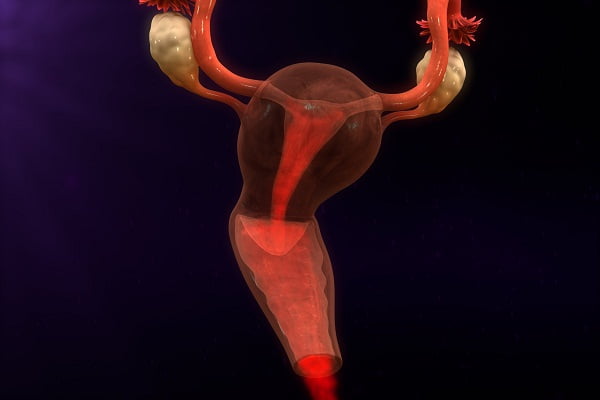Endometrial Cancer Classification: Types of Endometrial Cancer
- Updated on: Jul 29, 2024
- 2 min Read
- Published on Apr 20, 2021

Endometrial Cancer Classification
Endometrial cancers may be formed from epithelial cells, mixed epithelial and mesenchymal tumours (carcinosarcomas), or mesenchymal tumours.
Traditional classification of endometrial cancer is based either on clinical and endocrine features (such as types I and II) or on histopathological characteristics (such as endometrioid, serous, or clear-cell adenocarcinoma). There are some tumors that are difficult to be distinguished based on this approach as their features might be overlapping in some cases.
More: Endometrial Cancer Causes, Symptoms, Diagnosis, Treatment, Risks, Prevention
More: Glossary for Endometrial Cancer
Types of endometrial cancer
Various types of endometrial cancer are discussed herein:
Carcinoma
Most of the endometrial cancers are carcinomas (usually adenocarcinomas). They develop from the single layer of epithelial cells that line the endometrium. There are some subtypes of endometrial carcinoma, which are categorized into two categories, based on clinical features and pathogenesis:
- Type I: Type I endometrial carcinomas generally develop before the time of menopause. These are more common in whites who have had endometrial hyperplasia. These cancers are generally minimally invasive, and have a survival rate with treatment. About 70-90% of carcinomas are of Type 1.
- Type II: Type II endometrial carcinomas occur in older, post-menopausal women in most cases. These are more common in black women, and do not depend on the exposure to estrogen or history of endometrial hyperplasia.
Endometrioid adenocarcinoma
In this endometrial cancer type, the cancer cells grow in certain patterns. More than 3 out of every 4 cases of adenocarcinomas of the womb lining are of this type. These cancers are often diagnosed at an early stage and so are usually easy to be treated relative to other types.
There are different subtypes of endometrioid cancer. Some of them have squamous cells as well as glandular cells. Adenoacanthomas have a mix of cancerous glandular cells and non cancerous squamous cells. If both the glandular cells and squamous cells are cancerous, it is called adenosquamous carcinoma.
Serous carcinoma
Serous carcinoma is a Type II endometrial cancer. About 5–10% of diagnosed endometrial cancer are of this type. This is more common in post-menopausal women with atrophied endometrium and black women.
It is aggressive in nature and often invades the myometrium and metastasizes within the peritoneum or the lymphatic system.
Clear cell carcinoma
Clear cell carcinoma is a Type II endometrial tumor. Only less than 5% of diagnosed endometrial cancers are of this type. It is usually aggressive and carries a poor prognosis like that of serous cell carcinoma.
Mucinous carcinoma
Mucinous carcinomas are a rare form of endometrial cancer. They make up less than 2% of all diagnosed endometrial cancer. Mucinous endometrial carcinomas are most often stage I and grade I. The prognosis for these cancers is very good.
Mixed or undifferentiated carcinoma
Mixed carcinomas have both Type I and Type II cells, with one making up at least 10% of the tumor. An example is malignant mixed Müllerian tumor.
Undifferentiated endometrial carcinomas are not very common and constitute only less than 2% of the total diagnosed endometrial cancers. They have a worse prognosis.











